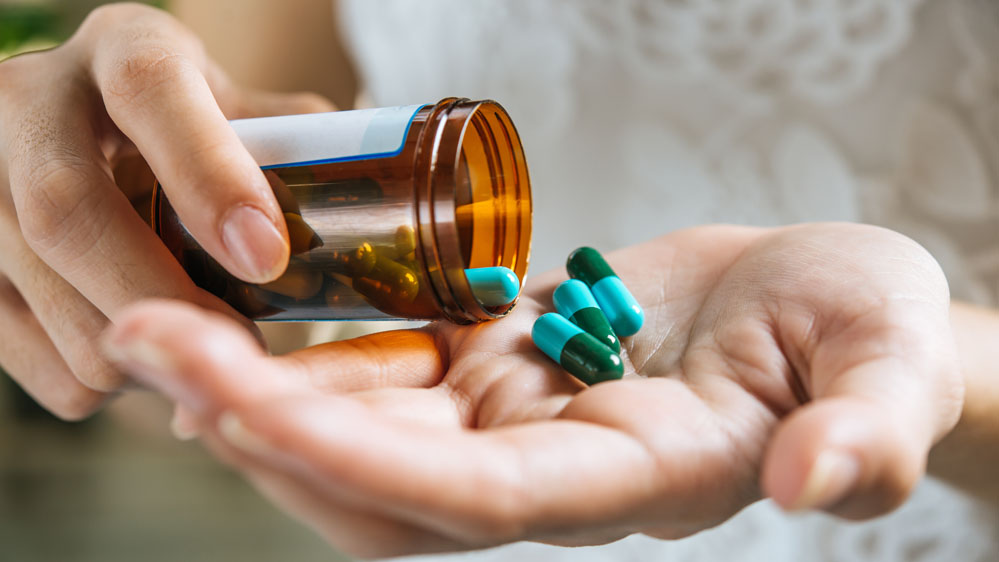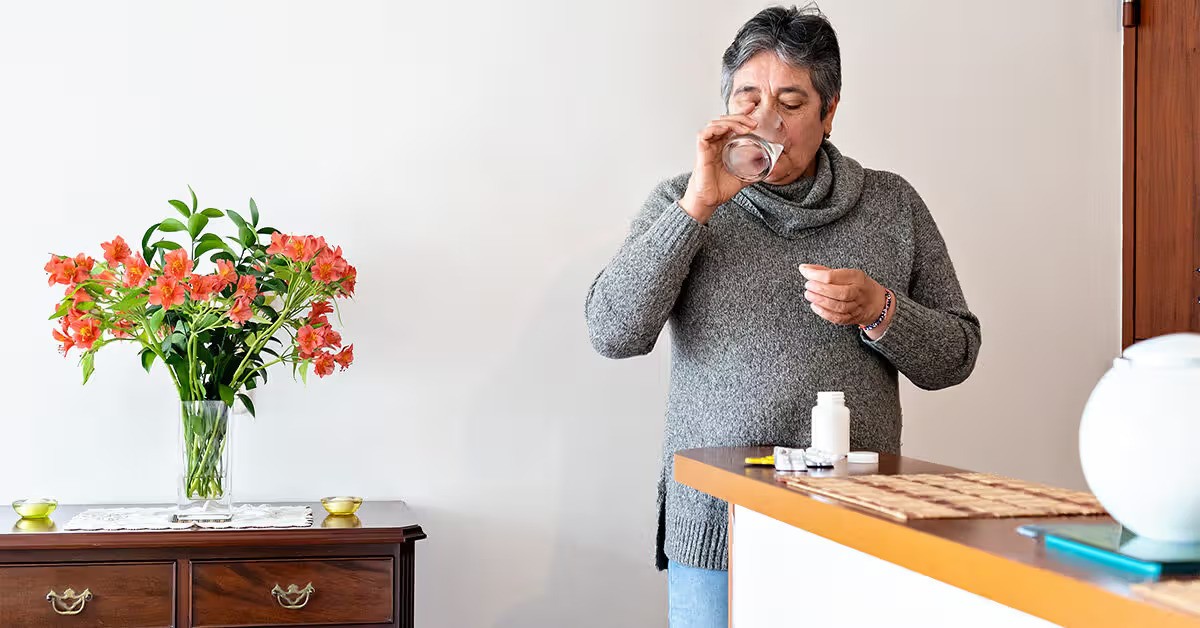Understanding Antibiotic Resistance - From Microscopic Battles To Global Concerns
Understanding antibiotic resistance is a call for everyone to pay attention and help out. It's a big deal because if we don't act, we might enter a time when small infections can become big problems again, just because our medicines won't work like they used to.
Author:Katharine TateReviewer:Karan EmeryMar 07, 20248.2K Shares112.5K Views

Antibiotics are special medicines used to kill bacteria that make us sick. Since their discovery, they have been like magic bullets, helping us fight off serious infections that were once deadly. However, there's a big problem no, some bacteria have learned how to survive even when we use these medicines.
Understanding antibiotic resistanceis crucial. Antibiotic resistance is like a game where the bacteria keep changing their strategy so the antibiotics can't catch them anymore. This issue is very serious because it can make it hard for doctors to treat common sicknesses, and we need to learn more about why it's happening and what we can do to stop it.
The Rise Of Antibiotic Resistance
Antibiotic resistance unfolds like a microscopic battle where bacteria undergo alterations, rendering drugs intended to cure or prevent infections less effective. It's akin to an intricate chess match where bacteria, with their ever-changing strategies, outsmart the medications meant to defeat them. As these resilient bacteria withstand the drugs, they not only survive but also propagate, intensifying the threat they pose.
To grasp this concept, envision a garden besieged by persistent pests. When a single pesticide is repetitively employed, some pests evolve, constructing a protective shield. These formidable "super pests" then reproduce, rendering the pesticide powerless.
The parallel between this scenario and antibiotic resistance is striking, just as diverse pests adapt to thwart a pesticide, bacteria mutate to withstand antibiotics, highlighting the need for diverse approaches in our ongoing battle against microbial adversaries. Understanding this intricate interplay unveils the urgency of adopting a multifaceted strategy to curb antibiotic resistance and preserve the efficacy of these crucial medications.
How Does Antibiotic Resistance Happen
Natural Resistance
In the world of bacteria, some have a built-in defense system against specific antibiotics, like a shield protecting them. This resistance is not something they acquire over time; it's part of their genetic code, like having a special armor that certain medicines can't penetrate. Picture it as a natural trait that these bacteria are born with.
When doctors use antibiotics to fight infections, these naturally resistant bacteria are like the immune superheroes of the microbial world, standing strong against the drugs that might knock out others. Understanding this natural resistance helps us see that not all bacteria respond the same way to antibiotics, and it's one piece of the puzzle in the larger challenge of antibiotic resistance.
Mutation
Imagine bacteria as tiny, bustling communities where new generations are born quickly. In this lively environment, every now and then, a little change, called a mutation, happens. It's like a tiny superhero power-up for some bacteria. This mutation can make them tough, almost like wearing a shield against antibiotics.
Now, with this newfound strength, these mutant bacteria have a competitive edge, allowing them to grow and spread without any obstacles. It's a bit like a superpower contest in the microscopic world, where the mutants gain an upper hand and become the reigning champions in the battle against antibiotics.
Understanding this bacterial evolution is crucial because it shows how these tiny organisms adapt and become resistant, posing a challenge for our efforts to fight infections.
Misuse And Overuse Of Antibiotics
One major challenge in the world of antibiotics is their misuse and overuse, and it's a significant player in the drama of antibiotic resistance. The more we rely on antibiotics, the more opportunities we unintentionally provide for bacteria to evolve into resistant strains. This isn't just about us humans taking antibiotics; it's a wider issue.
Imagine antibiotics being used not only in our medicine cabinets but also in the vast landscapes of agriculture and among animals. It's like providing the bacteria with a constant puzzle to solve, pushing them to adapt and develop resistance.
This misuse and overuse create an environment where these microscopic foes become tougher and more resilient, posing a threat to the effectiveness of antibiotics for both humans and animals alike. Understanding the scope of this issue is vital as we navigate the delicate balance between using antibiotics for our well-being and ensuring their effectiveness in the long run.
Proffered Solution
Use Antibiotics Wisely
Prudent use of antibiotics is paramount in maintaining their effectiveness as powerful tools against bacterial infections. It is crucial to adhere to the guidance of certified health professionals when it comes to antibiotic prescriptions. Refrain from pressuring your doctor into providing antibiotics if they deem them unnecessary for your condition.
Antibiotics are not one size fits all solutions, and their misuse can contribute to the development of resistant strains. Trusting the expertise of healthcare professionals ensures that antibiotics are prescribed judiciously, targeting the specific bacteria causing an infection. By following these guidelines, we actively participate in safeguarding the potency of antibiotics for ourselves and future generations, fostering a responsible approach to healthcare and antibiotic use.
Complete Your Course
Ensuring the effectiveness of antibiotics involves a commitment to completing the prescribed course meticulously. If a healthcare professional prescribes antibiotics, it is imperative to follow their instructions precisely. Even if symptoms alleviate and you start feeling better before the course concludes, it's essential to continue taking the medication until the prescribed end date.
This comprehensive approach prevents the survival of any remaining bacteria, minimizing the risk of developing resistance. In the microbial battleground within your body, completing the antibiotic course is akin to ensuring that every last opponent is vanquished, leaving no room for resilient bacteria to persist and potentially evolve into resistant strains.
Prevent Infections
Shielding ourselves from infections involves incorporating a range of straightforward yet effective practices into our daily lives. Regular handwashing stands as a cornerstone of defense, acting as a crucial barrier against harmful microbes that can lead to infections. Additionally, adopting meticulous food hygiene practices ensures that what we consume doesn't become a source of potential infections.
Vigilance in maintaining a safe distance from individuals exhibiting signs of illness minimizes the risk of contracting contagious diseases. Equally significant is the commitment to keeping vaccinations up to date, fortifying our immune system against specific pathogens. In this collective effort, these seemingly simple measures weave a robust shield, collectively contributing to a formidable defense against infections and underlining the significance of proactive and preventive healthcare strategies in our daily routines.
Fight Misuse In Agriculture
Combatting the misuse of antibiotics in agriculture necessitates a concerted effort to endorse and implement policies and practices geared towards reducing their excessive use. Supporting and advocating for sustainable agricultural practices that prioritize the welfare of both crops and livestock without relying extensively on antibiotics is crucial. This entails embracing alternatives such as improved hygiene, vaccination strategies, and enhanced animal husbandry practices to promote overall health.
By fostering awareness and encouraging responsible antibiotic use within the agricultural sector, we contribute to the preservation of these vital medications for human health. The symbiotic relationship between agricultural practices and antibiotic use requires a balanced approach, emphasizing the importance of sustainable, environmentally conscious, and health-focused strategies to ensure the long-term effectiveness of antibiotics in both healthcare and agriculture.
Understanding Antibiotic Resistance - FAQs
What Is Antibiotic Resistance And How Can We Overcome It?
When you use an antibiotic, there is a risk that some of the bacteria will turn resistant. Using these medicines when they aren't needed is a major reason why that is becoming more common. So you should use these medicines only when needed. Antibiotic resistance is often linked to a specific germ and antibiotic.
What Are The Biggest Causes Of Antibiotic Resistance?
The main cause of antibiotic resistance is antibiotic use. When we use antibiotics, some bacteria die but resistant bacteria can survive and even multiply. The overuse of antibiotics makes resistant bacteria more common. The more we use antibiotics, the more chances bacteria have to become resistant to them.
What To Do If Infection Comes Back After Antibiotics?
In such cases, your healthcare provider may repeat the treatment or prescribe a stronger antibiotic or combination of antibiotics. Or, they may opt to perform antimicrobial susceptibility testing (AST) in which a sample of your bacteria is grown in a culture to see what types of antibiotics it is susceptible to.
Final Thoughts
Understanding antibiotic resistance is a call for everyone to pay attention and help out. It's a big deal because if we don't act, we might enter a time when small infections can become big problems again, just because our medicines won't work like they used to. To fight this, we need to be smart about using antibiotics only when really needed, make sure we keep things clean to avoid getting sick, and teach everyone about how serious this is.
We also need scientists to find new medicines and other ways to treat infections. If we all work together, understanding and fighting antibiotic resistance, we can keep our medicines working and stay one step ahead of the super smart bacteria.

Katharine Tate
Author

Karan Emery
Reviewer
Latest Articles
Popular Articles
